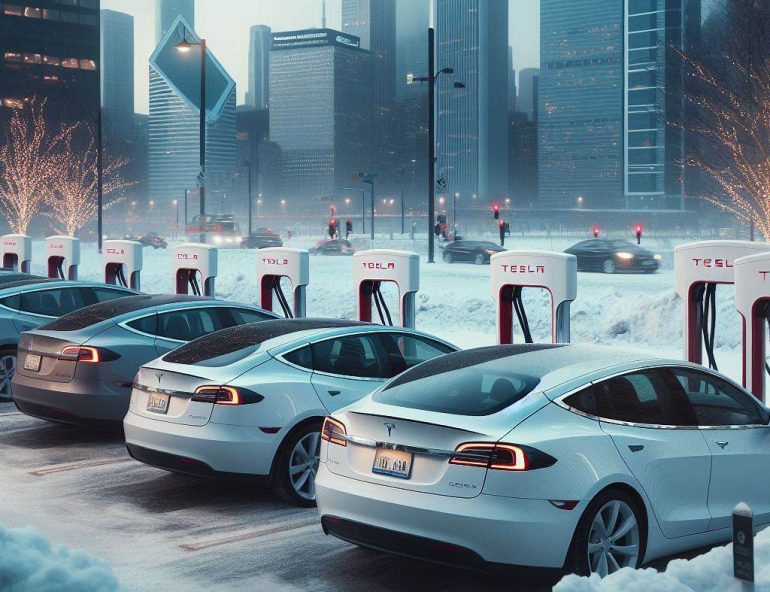
The recent severe winter conditions in North America have highlighted challenges faced by certain electric vehicles in extremely cold temperatures. In Oak Brook, a suburb of Chicago, Illinois, where temperatures have consistently dropped below freezing, reports surfaced of public charging stations turning into “car graveyards” as motorists struggled to power their electric vehicles.
Tesla owners found themselves in frustrating situations, with cars lined up and abandoned at charging stations, unable to charge in the frigid weather. One Tesla owner, Tyler Beard, shared his experience of being stranded with a dead battery even after hours of attempting to charge. Similar incidents were reported at various charging stations around Chicago, leading to concerns among electric vehicle users.
Despite these challenges, Mark Bilek of the Chicago Auto Trade Association suggested that drivers were overlooking a crucial aspect of electric vehicle usage – preconditioning the battery. He explained that, like any new technology, there’s a learning curve, and drivers need to prepare the battery for optimal charging conditions by raising it to the right temperature. However, preconditioning also comes with a drawback – it drains the battery.

Tesla’s “Cold Weather Best Practices” advise users to activate climate settings well before departure and use the Trip Planner to navigate to a charging location for at least 30-45 minutes before arrival. This process aims to ensure the battery reaches the desired temperature for optimal charging conditions.
The root cause of the problem lies in the basic behavior of batteries in freezing conditions. Inside electric vehicle batteries, ions move between positive and negative electrodes through a liquid electrolyte. As temperatures drop, this liquid thickens, slowing down the movement of ions and increasing resistance. The greater the resistance, the faster an electric vehicle loses power.
Various companies, including South 8 Technologies and LG Chem, are working on solutions to address this issue. Proposals include a “Liquefied Gas Electrolyte” that operates in a wider temperature range and new electrode chemistry to improve charging times and temperature performance. Tesla is also working on battery technology, although its next-gen 4680 cells are facing production challenges.
These incidents serve as a reminder that electric vehicle battery technology is still in its early stages, and improvements are necessary to make them more resilient to extreme weather conditions. Until advancements are made, it may be advisable for electric vehicle owners to exercise caution and avoid driving during deep freezes to mitigate potential issues.
Source: MSN Autos

Darryl Taylor Dowe is a seasoned automotive professional with a proven track record of leading successful ventures and providing strategic consultation across the automotive industry. With years of hands-on experience in both business operations and market development, Darryl has played a key role in helping automotive brands grow and adapt in a rapidly evolving landscape. His insight and leadership have earned him recognition as a trusted expert, and his contributions to Automotive Addicts reflect his deep knowledge and passion for the business side of the car world.